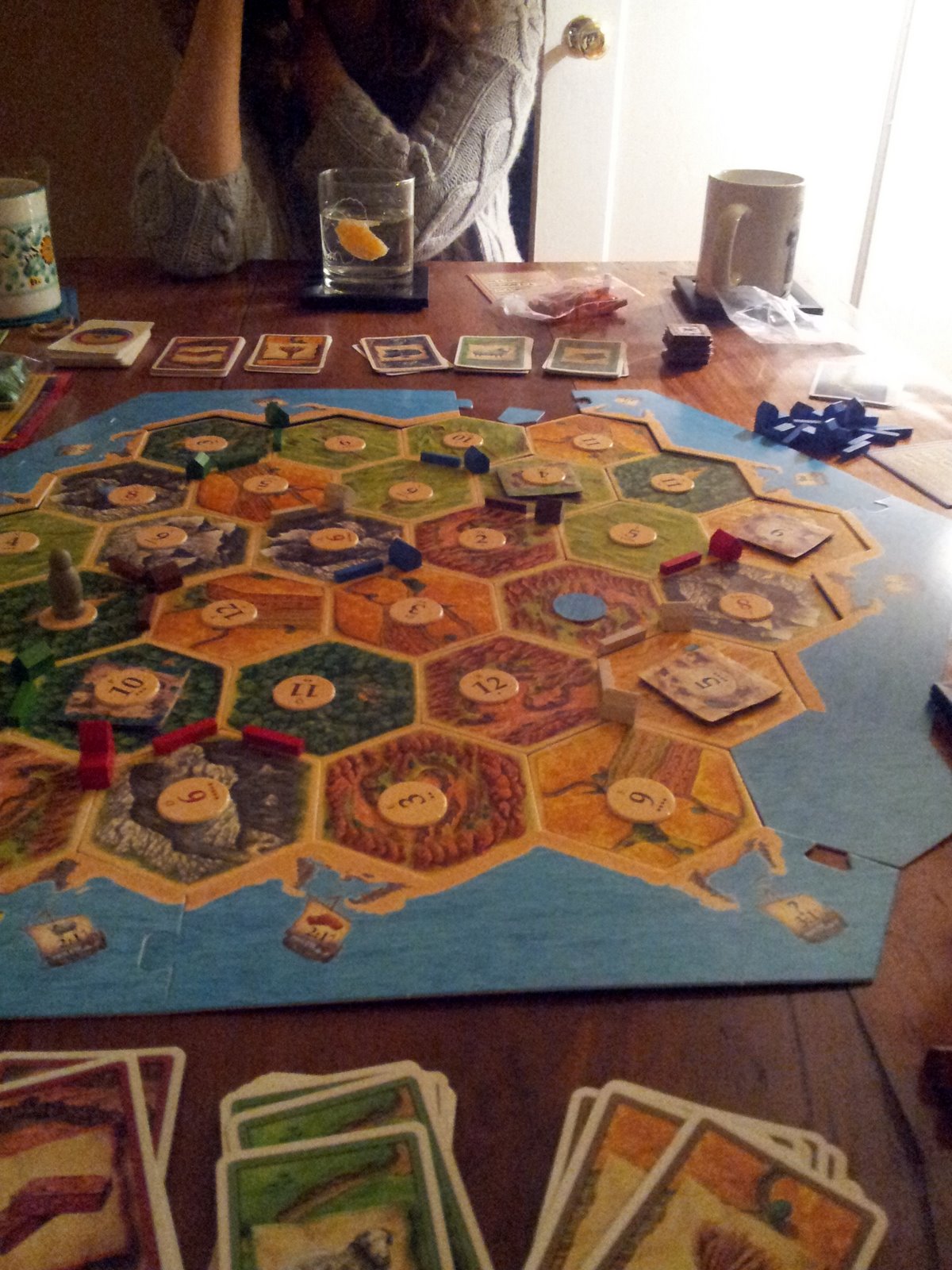"Greatest Board Game of All Time" Launches Environmental Spin-Off
by Jeffrey Steuben | December 15, 2011

Several holiday seasons ago, my family decided to bring back family game night with the purchase of a few choice board games recommended in the San Francisco Chronicle. From then on, strategy games have become a staple of every family get-together, and our collection has swelled to occupy several shelves on the bookcase.
There are two types of people who might be reading this: those who are familiar with the board game The Settlers of Catan and have probably played it, and those who haven't heard of it. If you are in the latter group, here's what you need to know: Settlers is a German game released in the mid-90s that has recently become one of the most popular board games in the world, with over 15 million copies sold.
I would go so far as to claim the game single-handedly brought about the renaissance of modern board gaming, attracting droves of new players to the world of well-made strategy games. One game of Settlers, and you'll throw Monopoly out the window for good.
The premise of the game is that players colonize an island, harvesting and trading resources to build roads and cities in an effort to create the most impressive civilization and win the game.
Recently, some friends and I got our hands on the newest Settlers scenario: Oil Springs, an environmentally themed extension created by Erik Assadourian of the Worldwatch Institute and game designer Ty Hansen. The scenario introduces oil as a new consumable resource and throws in new strategic variables like the consequences of fossil fuel consumption, including pollution and climate changed-fueled natural disasters.
I'm wary of educational moments in board games, as they can often be heavy handed and get in the way of enjoying the game itself. Luckily, Oil Springs avoids editorializing and simply lets the players experience it for themselves.
In fact, Oil Springs does a remarkable job simulating the rise of industrializing countries. Players who take advantage of oil early on can leap ahead of other players, but the more oil that's consumed in the game, the more problems begin to arise on the map. Warming temperatures kill forests, pollution shuts down mines, and there’s even a chance that rising sea levels will wipe out coastal cities.
In our game, I was luckily enough to score some oil and industrialize early on. I quickly built a network of cities and metropolises, only to later have pollution destroy several of my key resource fields. Unable to adapt to rapid climate change, the once-bountiful breadbasket of Catan shriveled up, and my forests were clearcut and unable to regrow.
Nevertheless, I was able to fully develop my empire, and then I began sequestering oil and obtained the "Champion of the Environment" badge for additional victory points.
Ironically, I also consumed the most oil of all the other players. Apparently, only those who can use oil and choose not to are the environmentalists. Just like in real life, pre-industrial (developing) countries aren't given credit for their smaller impact on the environment, but are still burdened with the collective consequences of climate change.
Oil Springs’ official release (with professional print sets) is in the coming weeks, but for now the rules and printable game pieces can be downloaded for free at www.oilsprings.catan.com.
No child should grow up without a timeless game like Settlers, and the Oil Springs addition brings eye-opening lessons to the table about resource consumption and our impact on the world. And most importantly, it doesn't detract from the fun of the game. This year, shut off the holiday specials on TV and start a new tradition with a game that everyone can get engaged in
Jeffrey Steuben is an energy efficiency project manager in Oakland, CA. His favorite board games include Stone Age, Race for the Galaxy, and yes, The Settlers of Catan.

